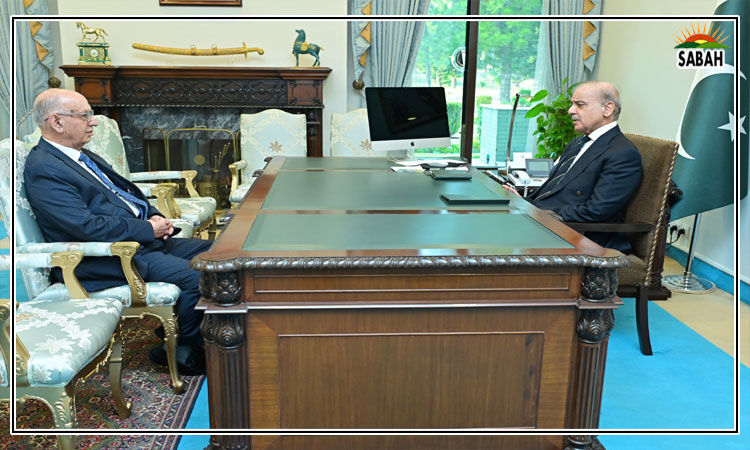Battling hunger? … Farhan Bokhari
As Pakistan’s rulers celebrate a successful IMF rescue to avert a sovereign default on debt repayments, Pakistan’s internal economy faces monumental challenges.
An equally stark contrast between the ‘sub acha’ (all is well) mantra versus the harsh realities of Pakistan remains without precedent in the nation’s history. In these trying times, Pakistan’s wheat farmers face unusually large pitfalls highlighting a root cause of the downward slide in the agricultural sector. And fundamentally, the sector needs urgent attention to stabilise the economy.
As November’s sowing time for the country’s main staple crop arrived, many growers faced an unprecedented crunch. Following the worst crash in wheat prices after harvest last spring, many low-income farmers chose to cut down on inputs to save costs. Some simply used stock of seeds from previous harvests rather than new seeds while others cut down on the use of chemical fertilizers. With expenditure on wheat inputs heading downwards, Pakistan faces an inevitable downturn in the output next spring.
The crisis triggered by crashing wheat prices was caused after the provincial government of the Punjab abruptly stepped back from purchasing stocks from the new crop at its own announced rate. The failure to pay the official ‘support price’ forced returns to farmers to drop by 30 to 38 per cent, causing an unprecedented dent in farm incomes.
Pakistan’s wheat fiasco of last year, though a matter of a broken promise, was nevertheless justified by a number of officials as yet another measure to comply with IMF conditions. Exactly why the world’s most visible lender of last resort forced a de facto break in a sovereign promise, remains baffling.
But taking Pakistan’s mainstream population for a ride on the grounds of an IMF diktat, also raises compelling questions over domestic policy gaps.
For years, Pakistan’s power corridors have echoed with demands from foreign lenders seeking tough adjustments in the agricultural sector. That large and politically powerful landowners remain immune from paying an income tax is a widely known reality that must change.
But policy blunders that are rapidly drawing down the outlook for the agricultural mainstream, are impossible to ignore. Unless reversed through a broad mix of reforms to lift Pakistan’s agricultural output, the future is set to look increasingly bleak by comparison to the present or the past. A recovery operation for Pakistan’s agriculture to lift food security must be led by a triangular set of initiatives.
First, a removal of subsidies must come in tandem with opening up the agricultural sector to a free market mechanism. For the moment, policies on this front remain a mixed bag. For instance, while ending subsidies for agriculture, the government uses a variety of mechanisms to control the price paid for outputs, causing a major contradiction. This must discontinue unless Pakistan’s ruling structure is determined to drive the agricultural sector deeper further into the ground.
On a related matter, successive governments have faced periodic demands from foreign donors to force farmers to pay the actual cost of canal irrigation water provided for their crops. Again, it is an unsustainable argument unless the government allows free market mechanisms to lead this sector. In an ideal state, if farmers are forced to sow their crops without the government’s financial support, they must also be allowed to reap full returns in the open market.
Second, Pakistan’s ability to oversee world class research for agriculture has simply crashed from its high days. This failure has notably come at an especially inopportune time as Pakistan battles the increasing fallout from climate change. At the same time, the country’s once efficient agricultural extension services have effectively crashed too. Those services were central to the transfer of knowledge and technology to farmers across Pakistan. A revival of research will remain just half baked unless the principal mechanism – extension services – are revamped to carry research findings forward to the door steps of farmers.
Finally, Pakistan urgently needs to go through a rethink of its economic direction. For years, successive governments have repeatedly cited ambitious goals in areas like industries or information technology to lift Pakistan’s prospects. Yet, these lofty goals over time have made little more than modest progress. Instead, increasingly tight affordability of food items for Pakistan’s mainstream population has highlighted the centrality of raising agricultural output. For now, members of the ruling class must recognise this central theme in Pakistan’s future journey.
Since the parliamentary elections in February, Pakistan’s new ruling class has repeatedly focused on plans for new infrastructure projects such as building expressways or fast train lines. It is a direction that needs to be suspended immediately in favour of a fresh push towards reviving Pakistan’s food security.
The consequential benefits of such a change will include improved supplies of commodities to local consumers while also substituting some of Pakistan’s imported commodities that can be produced at home. For now, battling domestic hunger is the most pressing way to stabilise Pakistan’s beleaguered economy.











